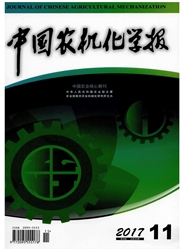

 中文摘要:
中文摘要:
养殖户作为生猪产业决策主体,粪污资源化利用状况直接影响政府相关政策的实施效果。笔者基于吉林省382份不同规模生猪养殖户实地调研数据,深入探析不同规模养殖户粪污资源化利用存在的差异及差异形成的原因。提出优化生猪产业空间布局,因地制宜形成种养结合的微观模式;政府制定环境约束和环境补贴政策应当符合地区发展实际,并保证政策的可持续性;加大粪污资源化利用的宣传力度等政策建议,以期更好地推动养殖户进行粪污资源化利用,促进生猪养殖业健康发展。
 英文摘要:
英文摘要:
Fecal resource utilization of hog farmers has direct influences on the implementation of government policies,thus,differences and the causes of fecal resource utilization were analyzed,based on the survey data of 382 different scale hog farmers.Firstly,the optimized spatial arrangement was put forward,which means micro patterns of planting-breeding would be formed according to local conditions.Secondly,environmental restraint and environmental subsidy policies should be formulated,which can conform to the regional reality and stay sustainable.Finally,some suggestions are proposed for promoting the fecal resource utilization,and boosting the healthy development of hog breeding industry,for example,increasing the propaganda of fecal resource utilization.
 同期刊论文项目
同期刊论文项目
 同项目期刊论文
同项目期刊论文
 期刊信息
期刊信息
